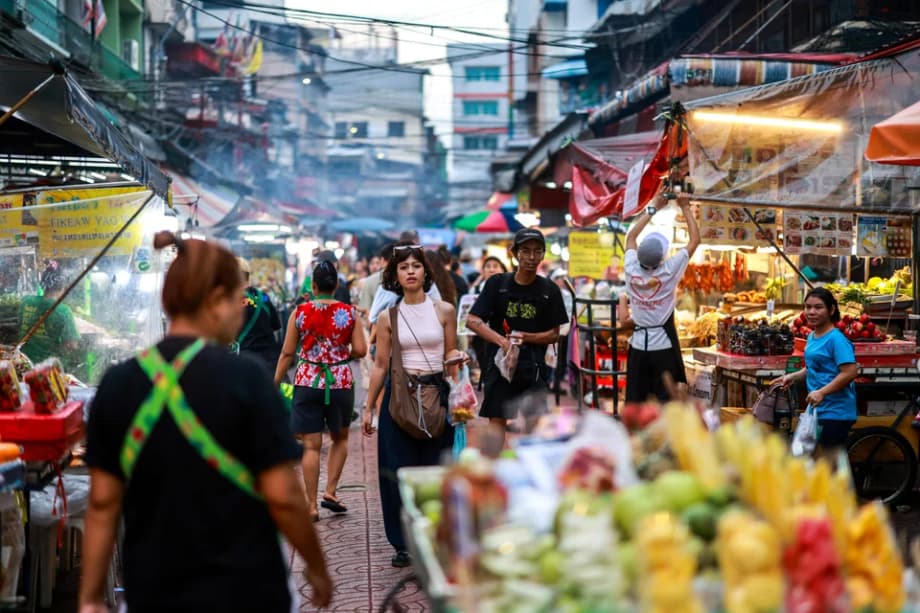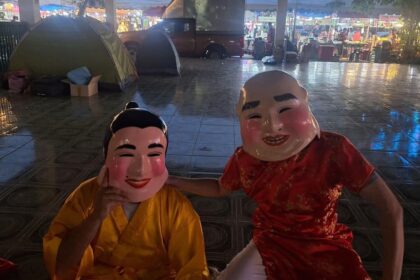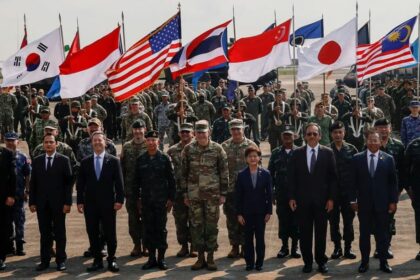A pledge on gambling reshapes Thailand’s China strategy
Thailand is banking on a clear promise to keep casinos illegal to coax Chinese visitors back in larger numbers. Prime Minister Anutin Charnvirakul told reporters that he reassured President Xi Jinping during meetings in South Korea that his government will not legalize gambling or casinos. He said Beijing welcomed the stance and would support travel to Thailand, a message that Thai officials believe could help reverse a sharp drop in arrivals from China.
- A pledge on gambling reshapes Thailand’s China strategy
- Why the casino stance matters to China
- Can safety concerns be addressed fast enough
- The economics of Chinese tourism for Thailand
- Competing with neighbors without casinos
- Inside the Xi Anutin conversation
- What Thai businesses are doing to welcome Chinese travelers
- Risks, tradeoffs, and domestic politics
- How the next months could unfold
- Key Points
Government spokesperson Siripong Angkasakulkiat said the country expects visible gains within weeks. He projected that the impact should begin to show within one or two months, a timeline that would align with the Lunar New Year holiday in February, a peak period for Chinese outbound travel. Thai officials describe Beijing’s feedback as a breakthrough in a year when safety worries, economic headwinds in China, and policy uncertainty deterred many travelers.
Chinese visitor numbers have lagged expectations in 2025. About 2.3 million Chinese tourists arrived in the first half of the year, roughly one third fewer than the same period in 2024. The broader tourism picture has also softened. Thailand expects around 33.4 million foreign visitors this year, nearly 6 percent fewer than 2024, which would be the first decline since borders reopened after the pandemic. Officials say winning back China, historically the largest source market, is central to stabilizing that outlook.
Safety concerns weighed heavily earlier this year. The kidnapping of Chinese actor Wang Xing in Myanmar, a case that reportedly involved transit links through Thailand, sparked intense social media chatter and triggered cancellations during a period that would normally be strong for bookings. The government insists that maintaining a casino ban sends a cultural and safety signal that dovetails with Beijing’s priorities while Thai police strengthen responses to scams and transnational crime.
Thai leaders also emphasized the diplomatic nuance. According to Anutin, President Xi made clear that China respects Thailand’s sovereignty but may advise its citizens to avoid destinations that promote casino gambling. Thailand’s assurance that it will not pursue casino resorts gives Beijing room to encourage travel to the kingdom without contradicting its own anti gambling stance.
Why the casino stance matters to China
China has toughened enforcement against gambling linked to overseas operations. Organizing or facilitating cross border gambling is illegal under Chinese law, and authorities have targeted networks that lure citizens to foreign casinos. The policy goal is to limit financial losses, prevent criminal exploitation, and curb related fraud. Information campaigns and travel guidance have warned against trips centered on gambling, while public security agencies have pursued groups that market casino promotions to Chinese nationals.
This environment shapes how Chinese travelers and tour operators pick destinations. If a country is seen to promote casinos, then group tours can face additional scrutiny and individual travelers may hesitate. Thailand’s promise to keep casinos illegal aligns with Beijing’s position. It reduces the risk that travel guidance could implicitly discourage trips to Thailand and helps travel companies pitch the country as a safe, ethically aligned choice for family and leisure travel.
The debate in Thailand had focused on so called integrated resorts, large-scale entertainment complexes that include hotels, shopping, shows, conventions and, in many cases, casinos. Supporters argued that legal resorts could capture tourist spending and tax revenue that now flows to neighbors. The new government has shelved that idea. By highlighting culture, nature, wellness, and food instead of gambling, Thai officials hope to present a clearer value proposition to Chinese visitors who want relaxation and experiences that do not involve gaming.
Can safety concerns be addressed fast enough
Security fears, more than policy debates, have weighed on sentiment among Chinese travelers. Reports of cross border crime in parts of mainland Southeast Asia, including trafficking and scam compounds, created anxiety. Incidents that touched Chinese public figures drew widespread attention online and were magnified by short video apps and chat groups. These perceptions sometimes overshadow on the ground realities in Thailand, a country where most visits are trouble free, but perception risk still matters when families choose destinations.
Thai authorities have moved to reassure the market. Police have highlighted arrests linked to online fraud rings. Border agencies stepped up checks on suspect travel arrangements. Tourism officials have pushed practical measures, including stronger coordination with tour operators, better lighting and cameras in busy urban zones, and expanded use of multilingual signage. The Tourist Police hotline and Chinese language assistance are being promoted to make help easier to access.
Cooperation with China is part of the response. The two governments discussed joint action against cybercrime networks that target Chinese citizens, as well as information sharing on organized groups that exploit tourists. Thai leaders are betting that visible progress on safety, together with the no casino message, will restore confidence. Travel sentiment in China is sensitive to social media trends, so early wins and clear communication could trigger a quicker rebound than a simple price or promotion push.
The economics of Chinese tourism for Thailand
Chinese travelers have for years formed the backbone of Thailand’s inbound market. They fill seats on scheduled and charter flights, anchor many hotel bookings, and support retail, dining, and attractions from Bangkok to island provinces. When Chinese demand softens, the effects ripple through small businesses and local transport providers because tour groups and independent travelers often patronize a wide mix of services.
The stakes are high. Tourism accounts for about 12 percent of Thailand’s gross domestic product. Even modest shifts in arrivals can move employment and income in hospitality, retail, and transport. The government’s forecast of 33.4 million total foreign visitors this year, nearly 6 percent below last year’s tally, reflects how sensitive the sector remains to Chinese demand. Officials are wary of hitting a down year so soon after the pandemic recovery and see the China turnaround as essential to stabilizing revenue in late 2025.
Seasonality gives Thailand a chance to regain momentum. Chinese travel tends to rise from late autumn through the Lunar New Year period and into early spring. If Beijing signals approval and Thai operators respond with targeted promotions, new routes, and dependable service, the first quarter of 2026 could benefit from pent up demand. The government is also nudging airlines and airports to increase capacity and improve arrival processing to reduce queues, a frequent complaint that can dampen word of mouth.
Competing with neighbors without casinos
Thailand sits in a region where many popular destinations host casinos. Macau is built around gaming, while Singapore and the Philippines operate integrated resorts that mix entertainment and casinos. Cambodia and Laos have casinos that attract cross border players. Thailand is choosing a different route. Rather than enter a crowded race for gaming revenue, it is reinforcing a brand that centers on families, nature, culture, wellness, and food.
Industry voices say this stance can sharpen Thailand’s pitch in China. Families deciding among Asian beach and city breaks may see a clear choice for value and variety without a casino footprint. Tour companies can plan itineraries with less concern about negative perceptions back home. Hotels and malls can shift resources to experiential features that matter to Chinese guests, such as live shows, culinary classes, and curated shopping tied to local brands, instead of planning for gaming floors.
There are tradeoffs. High roller play will go to Macau or Manila, and some convention groups that pair events with casino entertainment may land in Singapore. Thai officials argue that the size of the mainstream Chinese market, and the higher frequency of family and couple trips, outweighs that loss. A crisp safety record, predictable service, and memorable food and culture can deliver repeat visits, which is increasingly valuable as budgets in China face pressure from a slower economy and a weaker yuan.
Inside the Xi Anutin conversation
The shift gathered momentum after a face to face meeting between Prime Minister Anutin and President Xi on the sidelines of Asia Pacific Economic Cooperation meetings in South Korea. Anutin said he confirmed that Thailand will not pursue casinos or legal gambling under his government. He described the talks as friendly and productive, and said Beijing viewed the Thai stance as compatible with Chinese principles on outbound travel.
Speaking to reporters in Bangkok after the trip, Anutin offered a pointed summary of the tone of the meeting.
Prime Minister Anutin said: “The talks went well and were full of mutual understanding. President Xi appeared more at ease when he learned that the current Thai government has no policy to legalise casinos.”
After a Cabinet meeting in Bangkok, government spokesperson Siripong Angkasakulkiat outlined what the government expects to see on the ground.
Siripong said: “Visible, positive results are expected within one or two months,” adding that Lunar New Year in February should bring a seasonal bump in arrivals.
Anutin also relayed the nuance of China’s approach, saying that while Beijing does not interfere in domestic policies of other countries, it can advise its citizens on travel based on shared values. In practice, that means Chinese authorities can nudge travelers away from places that push casino tourism and toward destinations that align with safety and social priorities. Thailand’s casino ban allows China to back trips to the kingdom without mixed messaging.
What Thai businesses are doing to welcome Chinese travelers
Thai airlines and airports are gearing up for a busier northern winter. Carriers are adding capacity on popular city pairs and restarting charters that had been paused during the pandemic. Airport operators are pushing for faster arrivals processing and more language support, because the first hour in a country shapes a traveler’s mood. Provincial airports in tourist areas are coordinating with local authorities to manage peak crowding on weekends and holidays.
Hotels are racing to meet evolving tastes. Many Chinese visitors now prefer independent travel or small groups over big bus tours. Properties are expanding mobile check in, training more Mandarin and Cantonese speaking staff, and adding quick pay options like bank cards and digital wallets used in China. Restaurants and attractions are updating signage and menu translations to reduce friction. Retailers are pairing promotions with digital channels that Chinese consumers already use, which lowers the cost of reaching potential visitors back home.
Tourism agencies are adjusting marketing. The focus has moved toward culture, wellness, beach getaways, and city dining. Campaigns emphasize safety, value, and hassle free experiences. Operators report that families and young couples are the most responsive segments. With the casino question settled for now, travel sellers say they can market Thailand with fewer caveats, especially to parents who want a relaxing trip without gaming on the itinerary.
Risks, tradeoffs, and domestic politics
The casino question divided Thai politics throughout the past year. The previous administration had backed a proposal to study large entertainment complexes that could include casinos. Supporters said legal venues would recapture spending that leaks to neighboring countries and generate taxes, jobs, and investment. After a backlash from religious groups, academics, and civil society over addiction and crime risks, the bill was set aside in mid 2025. The new government has now closed the door on legal casinos for the foreseeable future.
Critics of legalization warned that regulated casinos can still open the door to money laundering, loan sharking, and household debt problems. Regulators in other countries have struggled with enforcement and social costs. Thai leaders also faced a sensitive geopolitical reality. Beijing has discouraged its citizens from traveling abroad to gamble and has targeted overseas casino recruitment of Chinese players. At a time when China remains vital to Thailand’s visitor mix, policymakers judged that the tradeoff favored a clear no.
The ban by itself will not end illegal gambling or rogue online operators. Police and telecom regulators will still have to pursue illicit sites that target Thai and Chinese consumers. The government says joint action with China against cybercrime and scam syndicates will intensify. For businesses on the ground, the immediate test is simpler. Deliver warm service, keep visitors safe, and make the trip feel easy. If that happens, word of mouth in China can improve quickly.
How the next months could unfold
Officials expect a sequence of steps. First, clear and consistent public messages in both countries about the casino ban and safety cooperation. Second, airline schedules that match demand, including charter approvals for peak weeks. Third, hospitality and retail offers aimed at families and young couples who are ready to travel but want value and comfort. If those pieces move in tandem, arrivals from China can accelerate from late December and into the Lunar New Year period in February.
Seasonal dynamics matter. Bookings from northern China and the Yangtze River Delta often spike when winter sets in. Thailand’s beaches and temperate northern cities appeal to travelers who want a short flight and warm weather. An early signal from Beijing that Thailand is a good choice would make a difference. Tourism authorities are preparing joint promotions and city to city partnerships to keep the recovery steady into the spring shoulder season.
Diplomacy will also play a role. The two countries are approaching the 50th anniversary of diplomatic relations in 2025, a milestone that can support more cultural and educational exchanges. Progress on rail and bridge projects that improve regional connectivity could also help 2026 planning. For now, Thai policymakers are counting on a simple proposition. A firm casino ban, better safety coordination, and predictable service can bring Chinese visitors back in greater numbers.
Key Points
- Thailand reaffirmed it will not legalize casinos, a message delivered by Prime Minister Anutin Charnvirakul to President Xi Jinping during meetings in South Korea.
- Beijing signaled support for travel to Thailand, with Thai officials expecting visible gains within one or two months.
- Chinese arrivals in the first half of 2025 were about 2.3 million, roughly one third lower than a year earlier.
- The government projects 33.4 million total foreign visitors in 2025, nearly 6 percent fewer than in 2024, which would be the first drop since the pandemic.
- Safety concerns, including a high profile kidnapping case linked to Myanmar, drove cancellations early in the year.
- Thailand’s casino ban aligns with China’s anti gambling stance and is meant to remove a policy barrier to travel recovery.
- Tourism accounts for about 12 percent of Thai GDP, so a recovery in Chinese travel is a priority for jobs and income.
- Businesses are preparing for a seasonal bounce around Lunar New Year with more flights, language support, and targeted promotions.
- Domestic debate over casino legalization has cooled, and the previous proposal for entertainment complexes has been shelved.
- Thailand and China plan deeper cooperation on cybercrime and scams, part of a broader effort to make visits feel safer and easier.












